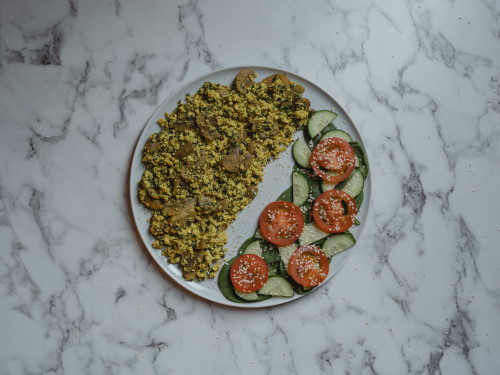Carbs aren’t the bad guys. In fact, healthy high-carb foods can be a part of just about everyone’s diet program. Whether you’re looking to fuel tough workouts or striving to put on muscle mass, healthy high-carb foods are a healthy part of your menu plan.
What Are Carbs?
“Carbs,” also known as carbohydrates, are one of the three macronutrients (i.e., carbs, protein, and fats). These macronutrients contain different amounts of calories per gram:
BREAKING: Eat This - Never Forget A Single Thing Again
- Protein = 4 calories per gram
- Carbohydrates = 4 calories per gram
- Fats = 9 calories per gram
Your body breaks carbohydrates into a usable fuel source called glucose, also known as blood sugar. This provides energy so your body and all its various functions can operate. When you eat carbs, it turns into energy that is readily available for use. If you take in too much energy, it can be stored for later use in the liver and muscles. If excess is consumed, it will be stored as body fat.
There are two main kinds of carbohydrates: simple and complex. Simple carbs include sugars, while complex carbs are made up of starches and fibers. Sugars are known as “simple” carbs as they require little to no processing. You can get simple carbs from healthy sources like fruits and veggies as well as dairy products. But, you’ll often see simple carbs coming from not-so-great sources as well, like sugars, processed foods, candy, soda, etc. These provide “empty calories,” meaning that while they have the requisite four calories per gram, they provide little to no nutritional value and can cause your blood sugar to spike, followed by a crash.
Starches, on the other hand, provide a longer-lasting surge of energy. These are called complex carbs and come from potatoes, oatmeal, whole grains, and other starchy vegetables like peas and corn. They offer sustained energy and are very satisfying because you feel full longer when you eat them.
Fiber rounds out the carbohydrate panel in many healthy foods like fruits and veggies, nuts, grains, beans, and seeds. Fiber requires energy to process and helps provide the roughage your system needs for smooth digestion and elimination. Carbs can be fibrous or non-fibrous.
Fibrous carbs contain a lot of water and not a lot of calories, especially in relation to fiber content. Many veggies and fruits fall into this category. These are healthy choices versus non-fibrous carbs like ultra-processed selections (sugars, juices, crackers, etc.) that have no fiber and only fast-burning carbs.
Are Healthy Carbs Good For You?
Carbohydrates have been seen as the bad guy for quite a while, in part due to the role they have played in weight gain and obesity, diabetes, and other health issues. Unfortunately, well-intentioned nutritional pundits have painted all carbohydrates in an unfair light. Think back to fads of the past where fat was demonized and people avoided all fats, including healthy ones. This is a similar situation where carbs have gotten a negative rap when, in fact, only some carbs are useless nutritionally.
While a “calorie is a calorie,” one calorie really does not provide the same nutritional bang for your calorie buck. How is this possible? It’s in how the calories are received and processed by your body and what happens after you ingest them. Healthy high carbohydrates will:
- Provide a source of sustained energy
- Aid in proper digestion
- Help you feel satiated
- Keep your brain functioning and cognition strong
- Lower the risk of heart disease and cancer
- Help you burn fat and build muscle
- Reduce cholesterol and blood sugar
5 Healthy High-Carb Foods You Need
Now that you have a solid understanding of carbohydrates, you’re likely wondering which healthy high-carb foods you should include in your diet. There are many great choices, but these five top the list:
1. Oatmeal
This high-carb food should be a staple in your diet. It’s high in healthy carbs but also boasts six grams of protein per cup. Super versatile, oatmeal can be used cooked or raw, flavored, as a cereal or a topping, ground as flour, or added to meals.
2. Rice
This is another basic carb you can add to your meals for a healthy high-carb boost. Some forms of rice will digest faster than others (like instant white rice), but less processed rice options will provide more sustained energy and fiber. Try long grain, wild, basmati, and brown rice varieties for the healthiest choices.
3. Quinoa
This healthy high-carb food just might be the manna of the 21st century. With plenty of energy-packed, high-quality carbs and lots of fiber (five grams per cup), this delicious and versatile food also has eight grams of protein per cup. Quinoa can be eaten hot or cold or dressed up any way you like it.
4. Whole-Grain Breads and Pastas
These complex starchy carbs can fuel your daily activities while helping you maintain blood sugar levels and control cholesterol. Plus, they help you feel full and satisfied, so you don’t feel the urge to grab a sugary snack—the less processed your selection, the better.
5. Beans & Legumes
TRENDING: Shed 42 lbs In 30 Days With This Simple Night-time Pill
These high-carb delectable foods also contain protein and can form a complete protein when mixed with rice. While they’re also a great source of antioxidants, iron, magnesium, and potassium, beans and legumes are fiber-dense and can help you feel full longer. They’re great in salad, soups, or side dishes, so don’t be afraid to add these flavorful food items to your meals.
Not only are healthy high-carb foods a delicious and welcome addition to any menu, they also help you get and stay healthy. With a lower calorie profile and lots of fiber, these are the perfect way to stay full longer. But remember, high-carb foods are only part of the picture. It’s essential to round out your diet with plenty of quality proteins and some healthy fats. Yes, while a calorie is a calorie, too much of a good thing will still be too much, so use your healthy high-carb foods strategically!









